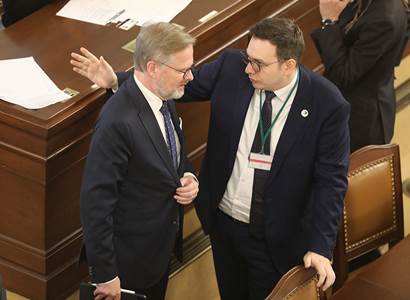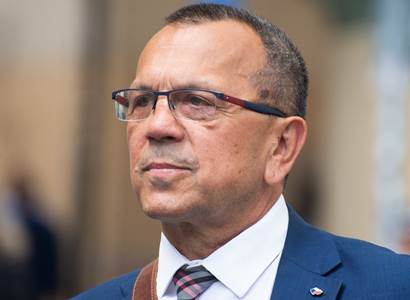I would like to welcome you in Prague. It is a pleasure and privilege to host the first ever ECOSOC meeting in the Czernin Palace and to have all of you here.
Would the world be any different without the 2030 Agenda? Probably not. But it would be very different without the values and principles that underpin the 2030 Agenda. Without the will and determination of nations united to transform our world and our lives.
As humans, we feed on ideals. We thrive on our struggle to make this world a better place. Improving the quality of our lives is our essential motivation. Improving our surroundings, our countries, our planet are also the goals of the 2030 Agenda. It is for a good reason that the 2030 Agenda focuses on “Five P’s” – People, Planet, Prosperity, Peace and Partnership.
Political parties and governments tend to forget sometimes that it is not power that societies are built on. It is ideas that became cornerstones of societies, even civilizations. Prime Minister Babiš recalled here today the centenary of Czechoslovakia. A state, which was born from the turmoil of a world war and which was founded on values such as humanity, democracy, peace, rule of law, ethics. And as we remember this anniversary today, we are, once again, reminded that these ideals are timeless. It is therefore no wonder that they are also at the core of the 2030 Agenda and its 17 Sustainable Development Goals. Goals, which are becoming the foundation of our future.
Achieving change in our interconnected world has become a crosscutting issue. We live in times when even a minor event can have global impact. This is also the reason why no one can be left behind. Not only would it be wrong, it would set all of us back. The broad scope of the 2030 Agenda allows everyone to achieve progress and succeed. Working jointly is not merely an option. It is an absolute must.
The 2030 Agenda offers a roadmap for a transformation of our world. There are no easy tasks ahead. Changes are happening at an unprecedented pace. We are facing some of the grandest challenges that humankind has ever had to face. But we also have the means and knowledge that humankind has never had before to cope with these challenges. The 2030 Agenda offers a roadmap for progress and instructions how to avoid future crises.
The 2030 Agenda is very ambitious. It gives us more than 17 goals and 169 targets. It gives us an opportunity to reflect on the sustainability of our lives, our ideas, our institutions. It offers us a chance to decide what kind of future we wish for.
The 2030 Agenda stipulates that every country is responsible for its own development. However, no country can succeed on its own. To have a future, we need to work together, find new ways and solutions, seek crosscutting approaches and visions beyond our horizon. It is not possible to achieve global and ambitious goals without the participation of all, without consensus and involvement of all segments of our societies.
The Czech Republic set on a journey from a totalitarian regime to democracy just twenty-nine years ago. This has never been done before. In a relatively short period of time, freedom was restored, the economy became market driven, the rule of law was reinstated, civil society was revived and the environment improved significantly. Last year, the economy grew by 4.5 % while unemployment was kept below 4 %.
With prosperity came the acceptance of our share of global and social responsibility. Learning our lessons and sharing our experience with the transformation of society is one of our contributions to the struggle for a better world. Our Transitions Programme and our Development Cooperation Programme are other examples.
A quote attributed to Charlie Chaplin says, “I look to the future because that’s where I am going to spend the rest of my life”. So also for my own sake I hope that we are on the right track. I hope that while working on the sustainable development goals, we will inspire and lead each other. Because there are only twelve years left until 2030.






